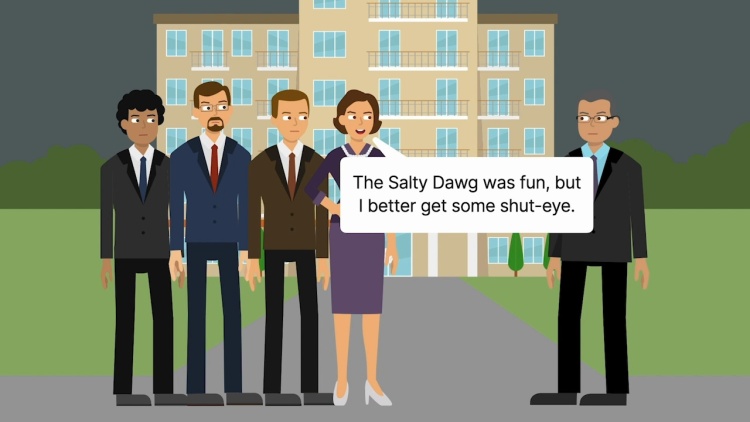Fruit v. Equitable Life Assurance Society
Alaska Supreme Court
502 P.2d 133 (1972)
- Written by Craig Conway, LLM
Facts
Clay Fruit (defendant), an insurance salesman, was required by contract to attend a sales convention held by his employer, Equitable Life Assurance Society (Equitable) (defendant). During the convention, Equitable required its employees to secure their own transportation, expected employees to socialize with other attendees at various restaurants and venues around town, and asked its employees to travel at all hours of the day and night between off-site locations and the convention center. Fruit visited a restaurant where he thought conference attendees would be but left when he discovered no colleagues were there. On the drive back to the convention center, the vehicle Fruit was driving skidded across the dividing line of a highway and collided with the front of John Schreiner's (plaintiff) car. Schreiner, who was standing in front of his car, was struck by Fruit’s vehicle and pinned between the two automobiles. Schreiner’s left leg was amputated, and the muscle tissue of his right leg was so destroyed as to leave him permanently disabled. Schreiner filed suit against Fruit and his employer, Equitable, seeking damages for his pain and suffering, mental anguish, medical expenses, loss of income, and other financial losses. After trial, the jury found that Fruit’s negligence was a proximate cause of the collision. Additionally, the jury concluded that Fruit was acting within the scope of his employment at the time of the accident and that Equitable was directly negligent in planning and conducting the convention, which was also a proximate cause of the accident. The jury awarded Schreiner damages of $635,000 from both defendants. Subsequently, the trial court denied motions by Schreiner and Equitable requesting judgments notwithstanding the verdict. The defendants appealed.
Rule of Law
Issue
Holding and Reasoning (Boochever, J.)
What to do next…
Here's why 907,000 law students have relied on our case briefs:
- Written by law professors and practitioners, not other law students. 47,100 briefs, keyed to 996 casebooks. Top-notch customer support.
- The right amount of information, includes the facts, issues, rule of law, holding and reasoning, and any concurrences and dissents.
- Access in your classes, works on your mobile and tablet. Massive library of related video lessons and high quality multiple-choice questions.
- Easy to use, uniform format for every case brief. Written in plain English, not in legalese. Our briefs summarize and simplify; they don’t just repeat the court’s language.









